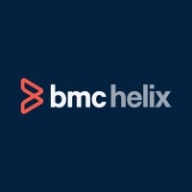

BMC TrueSight Orchestration and Temporal are competing in the enterprise automation space. BMC excels in enterprise integration, while Temporal shines with comprehensive workflow capabilities, making it appealing despite BMC’s strong support.
Features: BMC TrueSight Orchestration is notable for extensive integration with enterprise systems, robust monitoring, and automation capabilities. Temporal stands out with advanced workflow execution, high scalability, and sophisticated task coordination. BMC focuses on automating IT processes, whereas Temporal excels in high reliability and complex orchestration, ideal for businesses with demanding workflow requirements.
Room for Improvement: BMC TrueSight Orchestration could improve its flexibility and ease of use, as it often requires more initial configuration and resources. It might benefit from enhancing its user interface for quicker navigation. On the other hand, Temporal, although strong in developer-friendly features, could improve its immediacy of customer support and offer more business-oriented tools. Enhancing documentation and examples could also help users fully leverage its capabilities.
Ease of Deployment and Customer Service: BMC TrueSight Orchestration requires traditional on-premise deployment, which may involve complex initial configurations but offers responsive customer support. In contrast, Temporal adopts a cloud-native approach, allowing easy scalability and quicker deployment times. However, its customer support, though knowledgeable, may not always match BMC’s immediacy, thus appealing to organizations focusing on modern cloud operations.
Pricing and ROI: BMC TrueSight Orchestration has higher setup costs, offering significant ROI through its integration capabilities and support. Temporal is competitively priced with lower initial investment, attractive ROI backed by efficient task orchestration and flexibility. While BMC demands a higher upfront cost, Temporal offers a cost-effective solution with benefits scaling over time, appealing to organizations prioritizing long-term gains and flexible cost management.
| Product | Market Share (%) |
|---|---|
| Temporal | 7.6% |
| BMC TrueSight Orchestration | 0.9% |
| Other | 91.5% |


| Company Size | Count |
|---|---|
| Small Business | 2 |
| Midsize Enterprise | 2 |
| Large Enterprise | 5 |
| Company Size | Count |
|---|---|
| Small Business | 8 |
| Midsize Enterprise | 4 |
| Large Enterprise | 6 |
IT process automation can significantly lower the cost of IT delivery and reduce the risk associated with manual interactions. BMC Atrium Orchestrator automates common, repeatable tasks to improve quality of service across the board.
Temporal automates and manages workflows efficiently, offering resilience in distributed systems with features like retry and fault tolerance. Its capabilities in handling complex workflows and integrating with programming languages make it a valuable tool for managing diverse business logic.
Temporal excels in workflow orchestration, automating tasks across multiple platforms, and ensuring durability in asynchronous operations. It supports long-running workflows and simplifies handling distributed transactions, reducing boilerplate code. Temporal is noted for its durable execution and built-in retry policies, enhancing resilience. Despite its complexity and steep learning curve, it is valued for its integration with popular programming languages and relatively easy setup process, though it requires improvements in user-friendly features, documentation, community support, and security.
What are Temporal's key features?Temporal is implemented in sectors requiring robust workflow orchestration, such as managing data pipelines, API integration, and scheduling tasks. Organizations in a Kubernetes environment leverage it for its scalability and infrastructure management capabilities, securing integrations and enhancing reliability across IT operations.
We monitor all Process Automation reviews to prevent fraudulent reviews and keep review quality high. We do not post reviews by company employees or direct competitors. We validate each review for authenticity via cross-reference with LinkedIn, and personal follow-up with the reviewer when necessary.